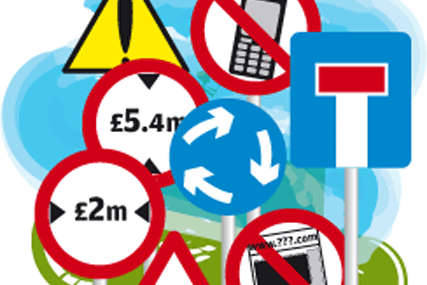Online advertising is expanding at a dramatic rate. In 2007, the UK's internet ad market increased 38% to more than £2.8bn, according to the Internet Advertising Bureau. A growing proportion of this revenue is courtesy of online advertising networks, which take the pages that publishers can't sell directly, and then sell that inventory on to advertisers at cheaper rates.
E-consultancy suggests the market for UK online advertising networks will expand by 60% in 2008 to an estimated value of £385m. And the IAB and Bain & Company's global survey suggests that the use of ad networks has surged from 5% of total ad impressions sold in 2006 to 30% in 2007.
However, when ads for brands such as eBay, Orange and easyCar appeared on an inappropriate fighting website via an online ad network last July, many brands and agencies began to wonder if getting unused inventory at such low prices was worth the potential brand damage.
The problem is that advertisers are purchasing inventory blind: they buy across a network without knowing the exact list of websites their ad will appear on. This lack of transparency damaged the reputation of the fledgling ad network industry, and became an issue it urgently needed to address.
The answer was the Internet Advertising Sales House (IASH). Originally established in 2005 by chief executives from 10 online advertising networks, the ad network council has developed a code of conduct designed to ensure display ads placed via IASH members' networks do not appear on websites that could jeopardise advertisers' brands.
The body recently made the online marketing community sit up and take notice with the announcement in July that it was suspending a member, 24/7 Real Media, for failing to take part in an audit. Clearly, IASH is serious about allaying advertisers' fears.
According to Mike James, managing director of Adconion, the requirements of IASH membership are onerous. "It involves a great deal of blood, sweat and tears to pass an IASH audit," he says. However, he is happy to cooperate as he believes IASH is the best way to demonstrate to advertisers that the ad network model works. And James is not alone. Twenty-two of the largest ad networks have now joined and passed their audit (see box, right).
So are advertisers more confident now? BLM Quantum's head of online commercial operations, Jim Gyngell, who represents brands such as
T-Mobile, Setanta and Domino's Pizza, says: "IASH is a much-needed organisation. I dread to think what state the industry would be in now without it."
Room for improvement
However, he believes it could improve. He says: "The practice of some IASH members running dual networks, when one is IASH-compliant and the other is not, needs immediate attention. IASH should provide clarity on the rules of engagement. How does it make its decisions? Are these decisions made in the best interests of the industry? And why doesn't it publish its minutes?"
Gyngell stresses that, despite these issues, he believes IASH is worthwhile. For their part, the networks report that brands and ad agencies are now asking whether they are IASH members.
However, some advertisers still have concerns.Richard Hemming, head of insight at Ebiquity, says: "When links can be exchanged very easily from one member of a network to the next, it is very difficult to guarantee that you will not find yourself on dodgysite.com. But networks will never disclose every site they trade with, because publishers wouldn't want advertisers to know how cheaply they could get inventory by not dealing with them direct."
Richard Sharp, UK managing director at IASH member ValueClick Media, agrees that advertisers need to remember that they get what they pay for. "We have stringent procedures in place to ensure ads don't appear on inappropriate sites," he says.
"But [the system] is not perfect, and it's never going to be. Very little advertising is. For example, how can you be sure your billboard poster won't appear on the news next to a murder scene? If advertisers want to know exactly which sites they're on, they can go to publishers direct. However, they will pay much more for it."
Rupert Staines, vice-president, Europe, at IASH member Specific Media, concludes: "There will always be unscrupulous people who will put ads in the wrong places. The point is that before IASH there were too many small, dodgy networks who didn't care if it happened. Through IASH we are weeding them out and making online advertising networks a much more secure way for brands to advertise."
IASH members
24/7 Real Media – reinstated October 2008
4 Digital Solutions
Accelerator
Ad2One
Adconion
Addvantage Media
Ad pepper Media UK
Adrevenue India Private
Advertising.com
Clickbrokers.net
Consilium Media
dgmDisplay
DrivePM
eType
Glam Media
GMW Media
Oridian
Specific Media
Tacoda UK
tdReach UK
Unanimis Consulting
ValueClick Media
Yahoo Network


